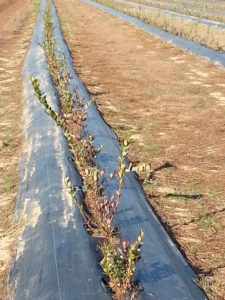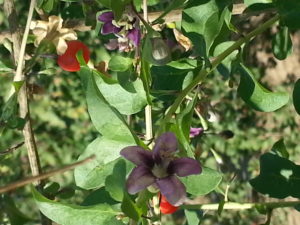We participated in the meeting of the participants of the "Smart Farmer" project in Greece
Within the framework of the project "Smart Farmer" at the end of September and the beginning of October we participated in the meeting of project partners in Greece. In the auditorium of the University of Athens, intensive work was carried out on creating educational materials useful for farmers in promoting agricultural products on the market. Experience from Greece, Spain, Portugal, Cyprus, Lithuania and Latvia was brought together.
In order to supplement the learning material with practical examples, the project partners' path then led to the heart of Greece - the Karditsa region. Active agriculture takes place in the Karditsa region. The Karditsa region is characterized by large areas of cotton cultivation. It is currently the cotton harvest season. It is harvested with John Deer harvesters owned by cooperatives and delivered to cotton collection and primary processing points. It seems that the sides of all rural roads are covered with cotton "snow". Potatoes, tobacco, and olives are also grown in the region.
The farms visited within the framework of the project were surprised by the practice of growing goji berries in the Karditsa region. It is a very labor-intensive crop both in terms of cultivation and harvesting. One berry picker can harvest no more than 10-12 kg per day. On the farm under review, berries are grown on an area of 5 ha. During their ripening period, 8-10 employees are employed. However, the owners admit that they still lose part of the harvest, because all the berries ripen at the same time and it is not possible to harvest the entire crop at the same time. Goji berry growers sell the berries to the Efkarpon cooperative for 15 Eur/kg. From the cooperative they receive packaging, logistics services, as well as a percentage of the profit (around 30%). Fresh berries are sold in stores at a price of 4-5 Eur/100g. The berries are also processed into marmalade (jam), liqueur is made, and dried. The cooperative has received half a million euros in funding from the Leeder rural development program to build a new processing plant. The cooperative's farmers are eagerly awaiting the opening of the new plant and are storing some of their berry production in cold storage in the meantime.
With great pride, local farmers showed off their newly planted chokeberry plantations. Chokeberry is a new crop in Greece, on which they have very high hopes. The berries will be used to make marmalade, add flavor to other products, and also be used to improve the color of other organic products. The purchase price of chokeberry significantly exceeds the price of Goji berries.
In Greece, the cultivation of large-berry blueberries is also being mastered. However, to ensure appropriate growing conditions for them, peat substrate is used, which is imported from Lithuania. The cultivation of all berries is unthinkable without additional watering, therefore irrigation systems are widely used.
There was an active discussion among the partners about developing new local products, such as a sauce for meat dishes with the addition of goji berries or muesli with dried goji and chokeberry berries.
Greek partners noted that local residents prefer to choose products selected in the region rather than cheaper ones purchased from China.
Growing blueberries
Growing Goji Berries



